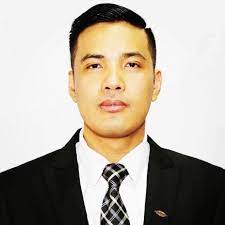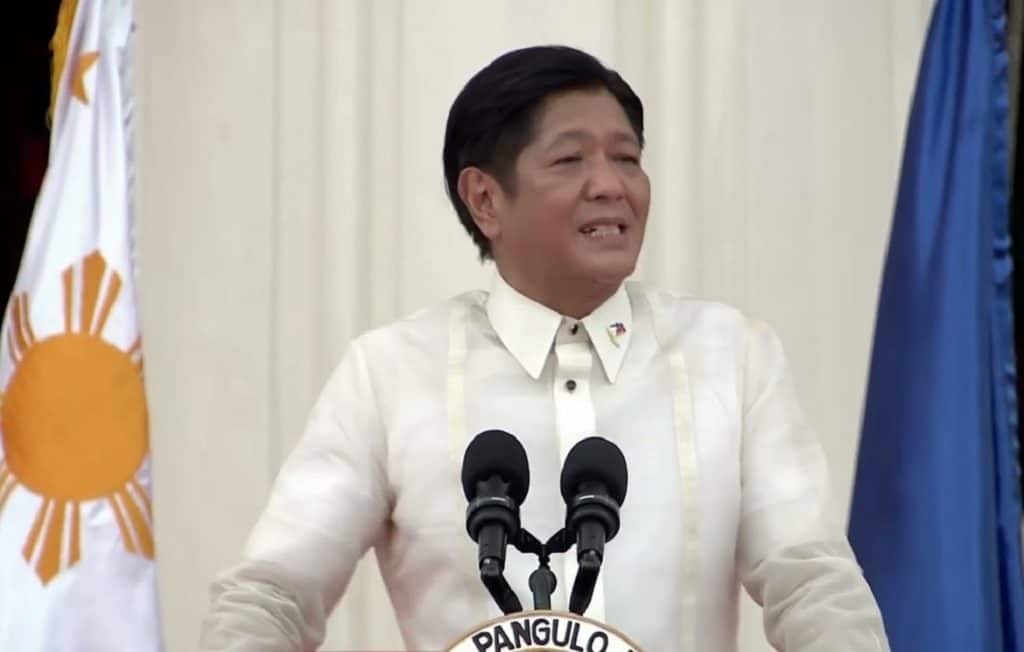By Chester Cabalza
The landslide win of President Ferdinand Romualdez Marcos Jr. echoes the campaign slogan of unity amid the effrontery of energy price hike in the world market and anticipated famine due to imported rice cartel in the region.

While Filipinos favour another strong man rule, the new leader garnered the biggest electoral mandate in the contemporary period of Southeast Asia’s oldest democracy, nostalgic of Machiavellian and aristocratic splendour of his father’s autocratic two-decade reign. Also known as Bongbong Marcos, his rehearsed inaugural speech on June 30 drove a sound bite of a road to recovery from a disruptive pandemic that may crash the global economy.
On July 12, Manila will honour the sixth year of Hague Ruling that invalidated Beijing’s concocted nine-dash line. This will be the first time that Bongbong Marcos will officially recognize a maritime landmark case his country has won from the Permanent Court of Arbitration. This was accented by his first foreign policy pronouncement as president-elect on May 27, weeks after he succeeded draconian leader Rodrigo Duterte. His articulation of sovereignty’s sacredness marked the intrepid strength of a striving nation seeking fortitude for territorial right from a snatched bold declaration to uphold the 2016 decision. This conveyance approach may lead to a chilling effect on Beijing’s friendly gestures.
Just like Rodrigo Duterte, the younger Marcos accepted Beijing’s red carpet invitation. Underlying a brazen pro-China foreign policy dictum lies Bongbong Marcos’ infatuation of a more responsive and strategic approach in light of a changing multipolar world. It happened during his father’s turbulent times when the provocative statesman performed likeness of ‘Asianness’ in his foreign affairs by pursuing a policy of constructive unity and co-existence with neighbouring Asian states regardless of ideologies. Similar intonation prospers in the age of Asian century enduring anti-West propaganda when it renews the alternative voice of ‘Asian for Asians’ belief that the new Filipino leader has to weigh in surrounding his evolving worldview.
The revelry in diversification of foreign and defence relations at present played in contrast to the re-enacted Philippine vulnerability in the past despite the normalization of diplomatic and economic ties with China and the former USSR while Manila widened its embassies among European states during the early Marcos years. The Philippines existentially maintained a strong alliance with the United States to support robust multilateralism championed by a Marcosian sharpness of diplomacy likened to a chief foreign policy architect whose bewildered expansive horizons optimized his father’s skilful management of international relations.
The obvious South China Sea conundrum hinders Manila’s ties with Beijing in full scale. In February this year, Marcos Jr. deemed to seek help from the Association of Southeast Asian Nations (ASEAN) and the United Nations (UN) to resolve the maritime and territorial dispute in the West Philippine Sea, a geographical feature from the vast South China Sea, legalized by his predecessor Benigno Aquino III who brought China to the court. Despite ASEAN’s doubtful centrality in resolving top security challenges in the region, the move became the primordial reason why the case was elevated to the international court.
While it may be true that Bongbong Marcos is more exposed to world culture and contours of geopolitics, the prism of his father’s astuteness and realism as co-founder of ASEAN, can become his guiding principle in crafting a refined Marcosian diplomacy. His new regime, albeit perennially underestimated in the international community, can unlock a new door of opportunity in the middle of uncertainty of global security that paves a way for policy innovations to increase regional cooperation and collaboration. Hence, the completion of the Code of Conduct in the South China Sea by claimant-countries in Southeast Asia and giant neighbour China will become a litmus test to redeem his Solomonic judgment and substantial leadership, often overshadowed by the diplomatic acumen of his legendary patriarch.
How he will turn around the military power of the Armed Forces as Commander-In-Chief is a reckoning force to redirect a firm stance against any Chinese threats to Philippine sovereign interests as Manila is expected to spell out a broader and clearer Independent Foreign Policy. This can be realized if the president uses a Clausewitzian will to modernize the armed force, coastguard and other security agencies―savouring diplomatic and economic rapprochements with the two rival superpowers, at the same time, focused on building a respectable national security infrastructure. The intended ambidextrous intervention can be only be attained if Bongbong Marcos grasps innate sophistication in dealing complex dynamics of asymmetrical geopolitical relations in the theatrical stage by strategically placing the Philippines in equitable platform to act crucially as a maritime middle power in the newly-fashioned Indo-Pacific region.
Arguably, the Marcos’ Anglophile ties can also reset Manila’s relations with Washington’s renewed interest in its former colony. It fosters equilibrium to Beijing’s aggressive wolf-warrior diplomats trying to win the hearts of Filipinos. More than the kinetic inertia posed by Cold War 2.0 that is distinctively perceived in the region, impending hot wars from major powers will bring quandaries to emerging markets in Asia destined to lead the world economy in the long run. More so, Manila’s hard balancing certainly will cost Bongbong Marcos inimitable bliss to rekindle an impetus to review his country’s strategic role that should eventually redound to the Philippine interest.
The reconstruction of new Marcosian diplomacy will go beyond the fate of Hague Ruling that alienated elitist acuity of national sovereignty and territorial integrity. The interplay of human security that cuts across the value chain of national security will offer bigger stakes for the Philippines to perform well its instruments of power to attain end goals of peace and order or stability and prosperity. The task appears rigid if the Philippines halts mendicant mentality and victimhood narrative. It is highly encouraged that Marcos Jr. should navigate transformative presidential prerogatives that are aligned to achieving a clever Philippine grand strategy.
Dr. CHESTER B. CABALZA is the President and Founder of the International Development and Security Cooperation (IDSC), a Manila-based think tank.
(The views expressed in this article belong only to the author and do not necessarily reflect the views of World Geostrategic Insights).







